Tiny toadstools and strange flora too!
Biodiversity-wise, Western Australia’s Hollywood is enormously wealthier than California’s.
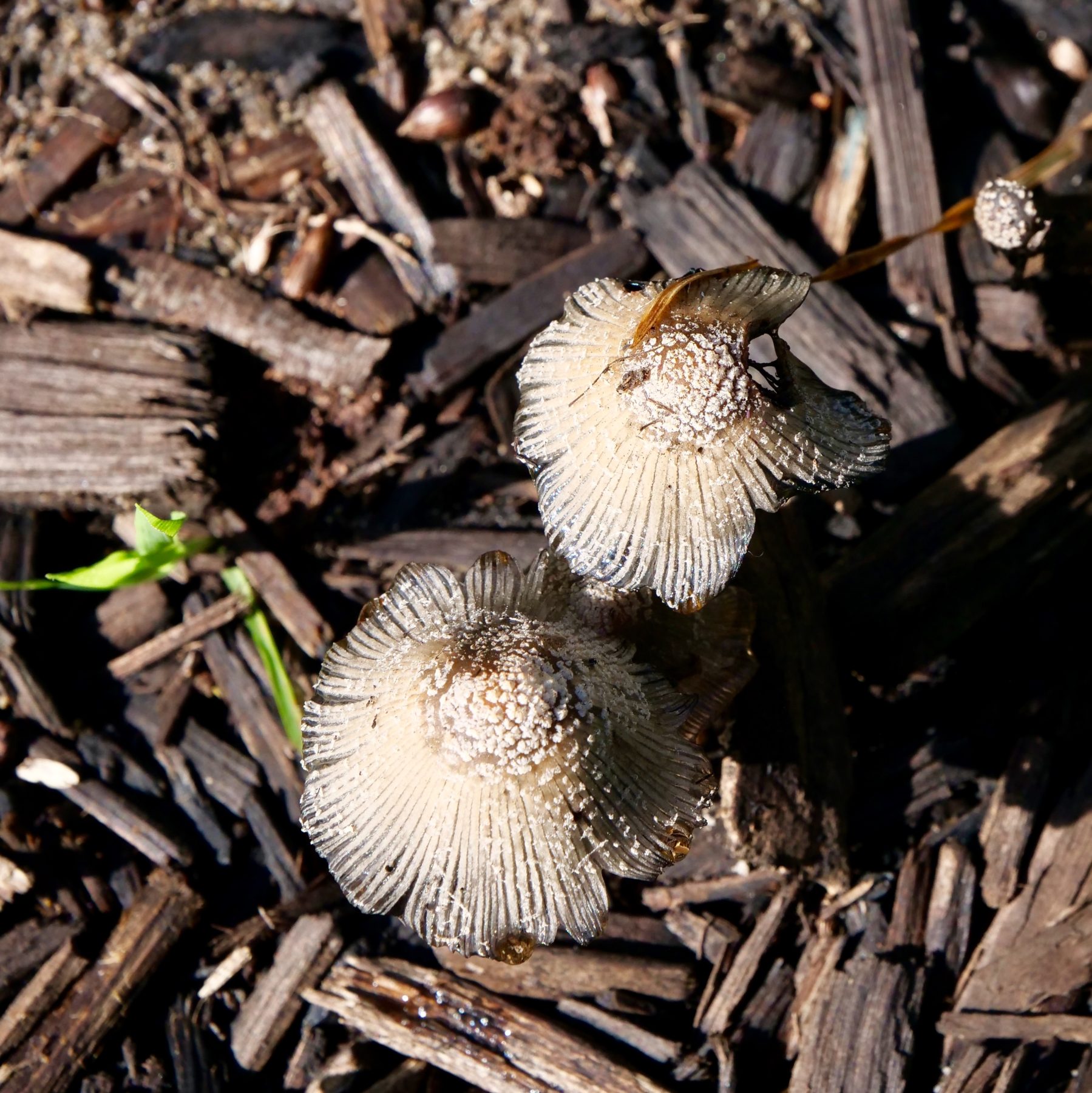
(all photos copyright Doug Spencer, taken in Hollywood Reserve on Wednesday 24 July 2019, within half an hour either side of noon. For more info on this “other Hollywood” click here)
To the best of my very limited knowledge, all of the fungi evident on this winter day belonged to “commonplace” species, but they were no less lovely for that.
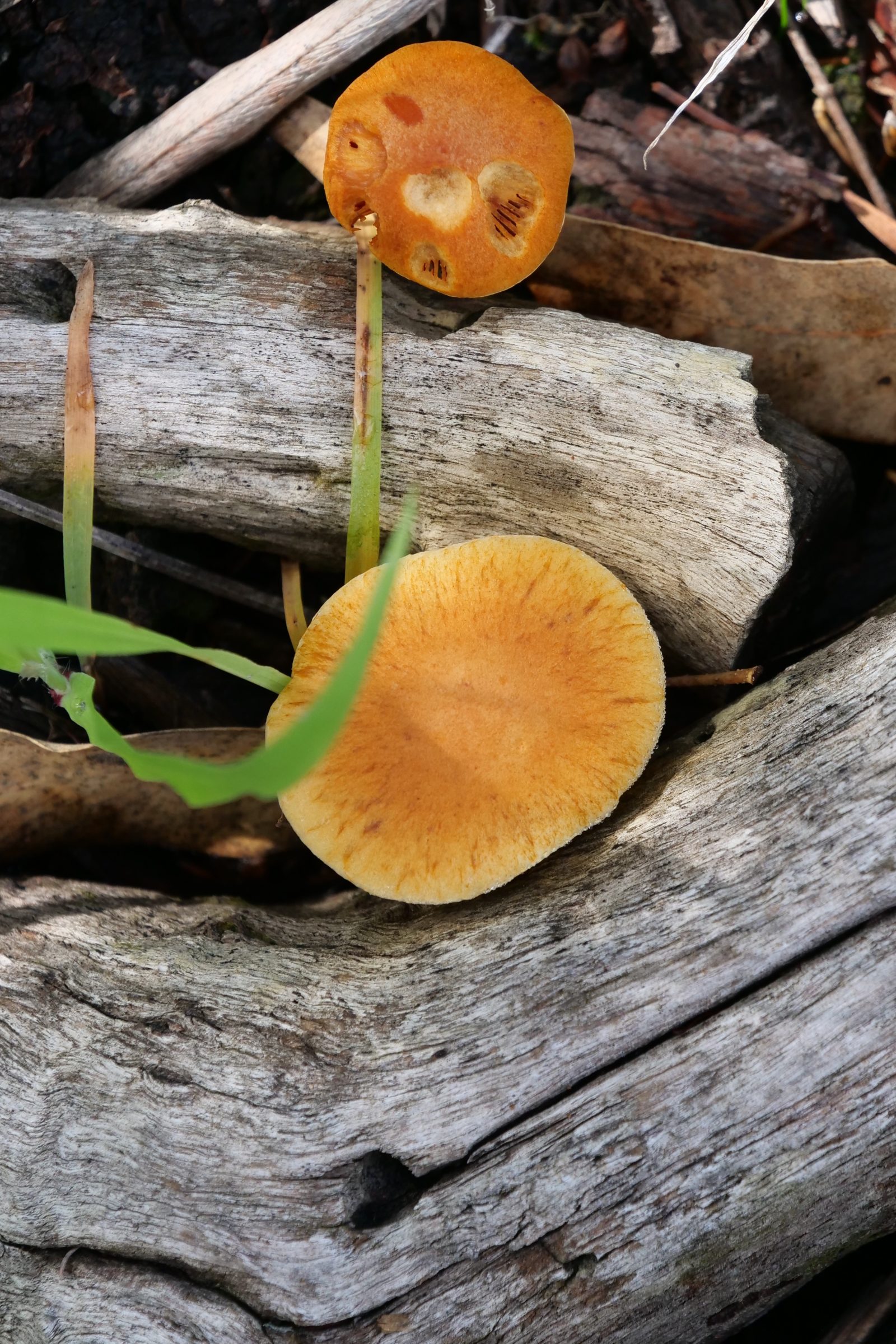
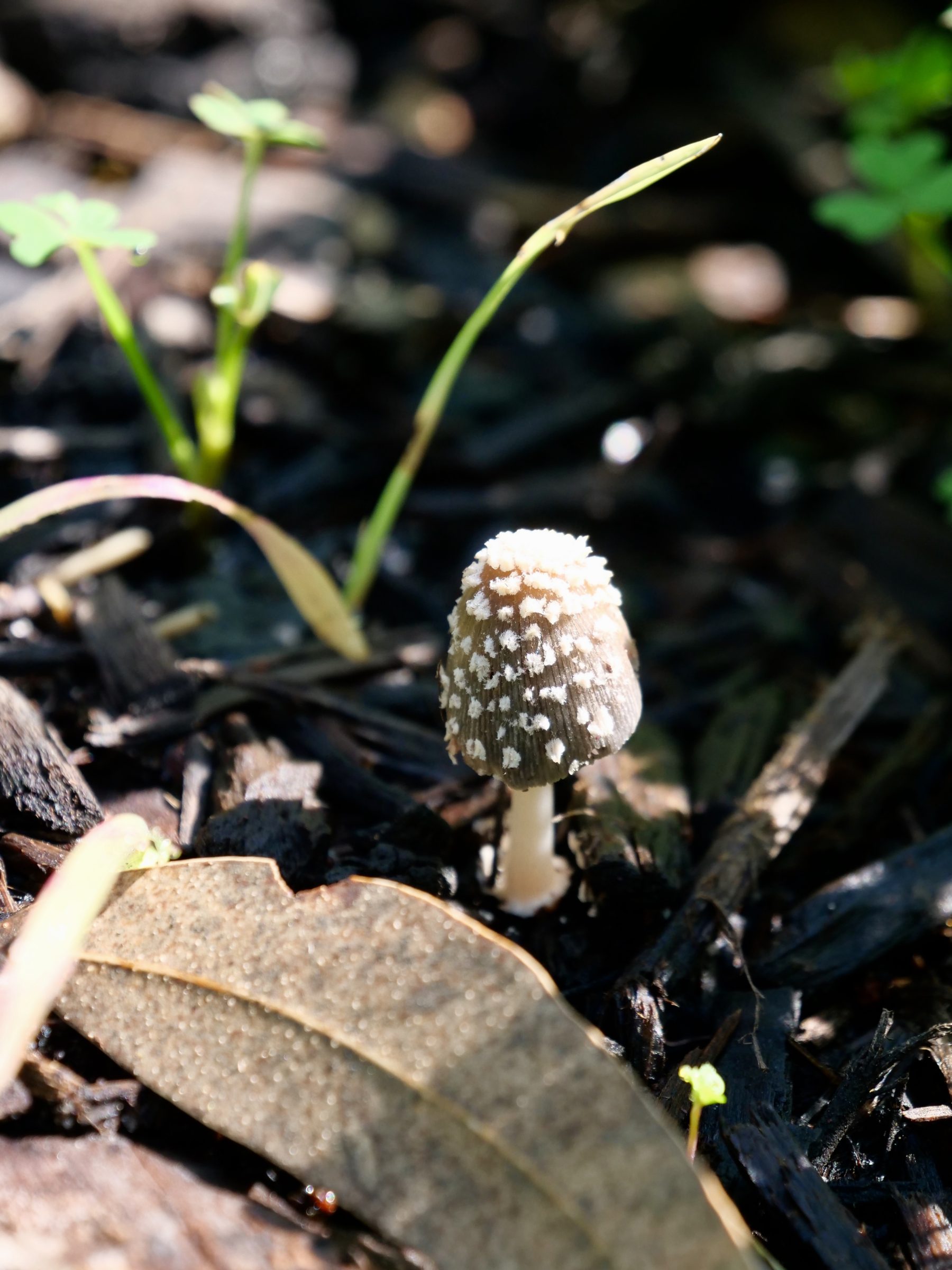
Southwest WA is a cornucopia of beautiful and bizarre flowering plants, many of which are endemic.
Currently blooming, directly from its trunk:
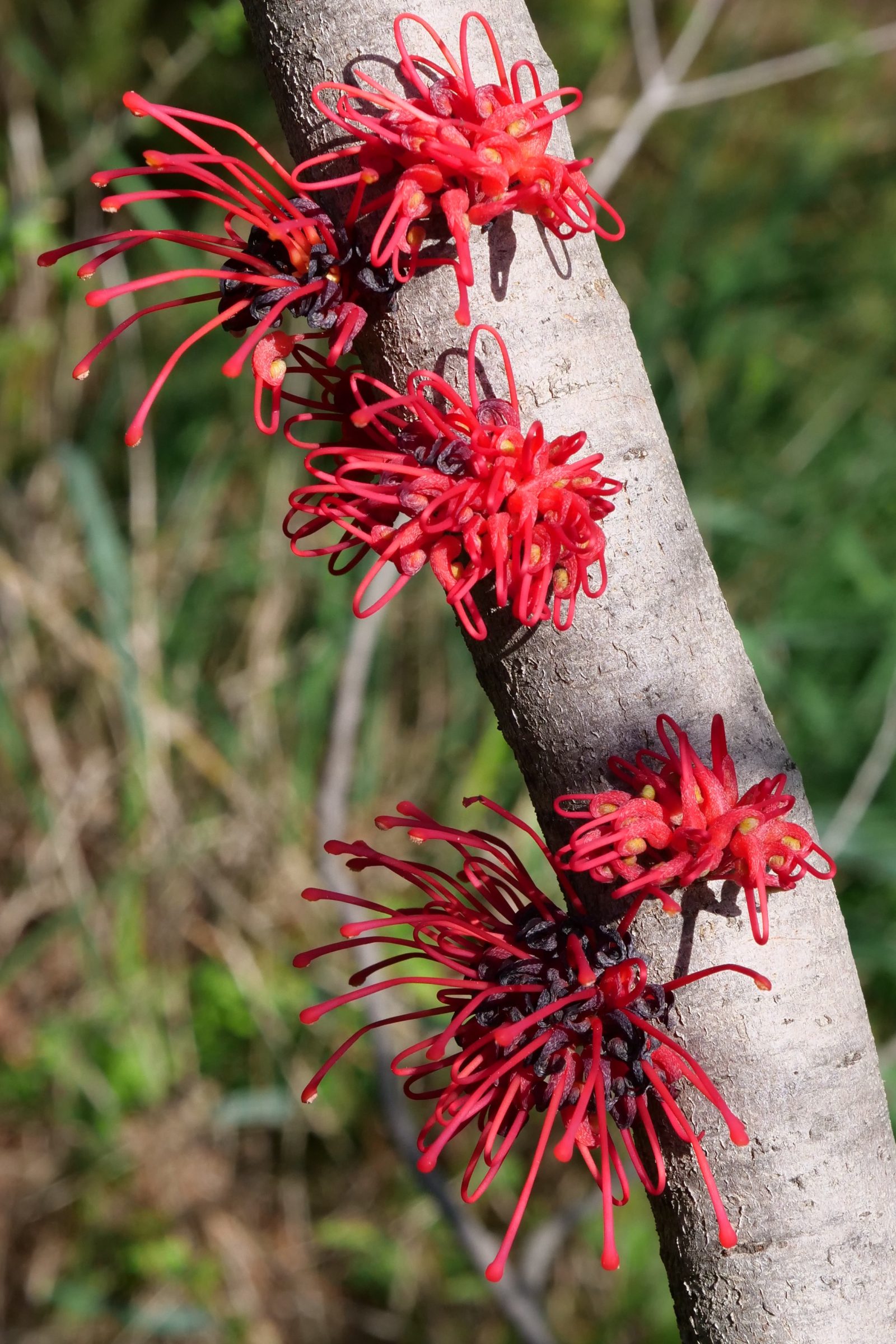
(a grevillea, I think. The second image shows an open seed pod on the same individual)
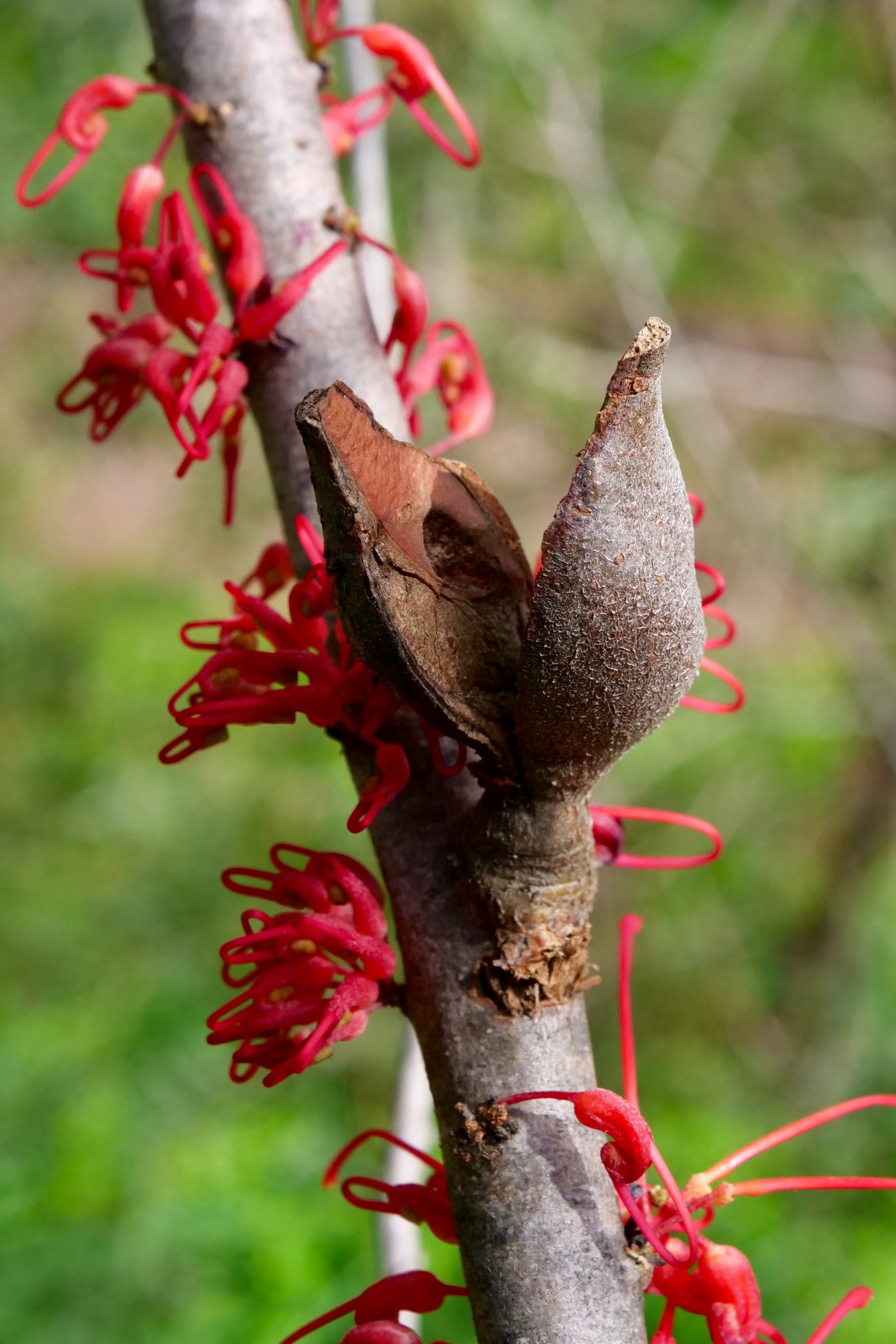
Also in bloom are Sandpaper Wattles, Acacia denticulosa.
Click here to discover more and to see its flowers.
More remarkable than its flowers are its incredibly tough, sharp-edged and abrasive-surfaced “leaves”, for which the plant is named.
Strictly speaking, they are phyllodes, not leaves.
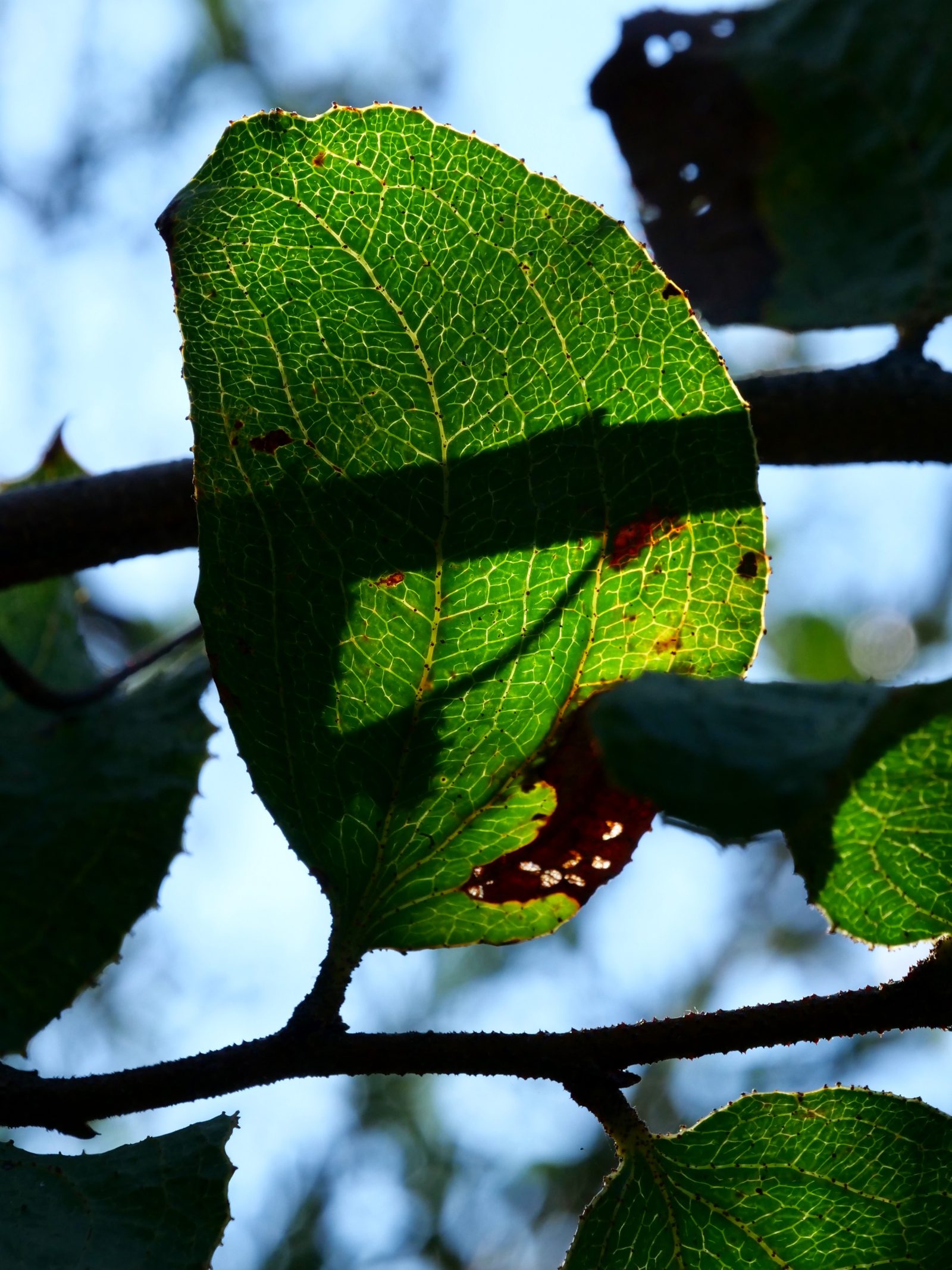
The world has just two white-tailed black cockatoo species; both live only in southwest WA, and each is an endangered species.
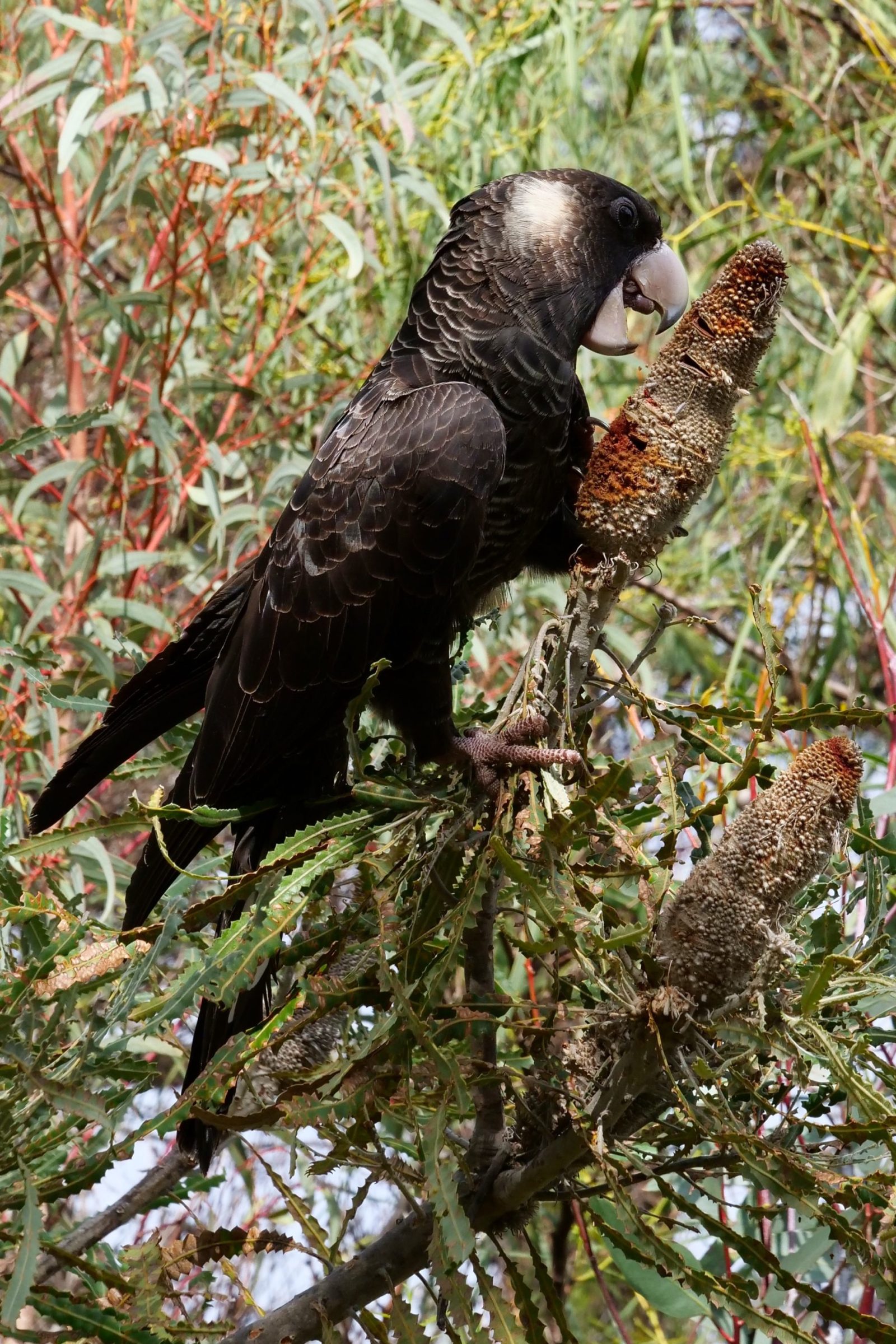
Carnaby’s black cockatoos are large, prodigiously loud, wide-ranging, highly sociable, intelligent birds.
Like a couple of million other human residents of Perth, we see and hear them at least several hundred times in any given year.
There are far fewer of them than us, and we – most especially via our destruction of their habitat – are the primary authors of the Carnaby cockatoos’ precipitous decline.
It ought be noted that this state’s “premier” university is playing a stunningly dishonourable part, in its capacity as irresponsible property owner and land “developer”.
The University of Western Australia’s home campus is less than a minute’s cockatoo-flying time from Hollywood Reserve!
Although we frequently see these rare, endangered birds, this week’s experience was extraordinary.
For whatever reason, the cockatoos feasting on Banksia cones at Hollywood Reserve on Wednesday were utterly unworried by our proximity.
My long lens remained idle; all photos were taken with the “standard” lens, which reaches just 120mm in 35mm camera equivalence.
The birds were always aware of us, but never anxious about us.
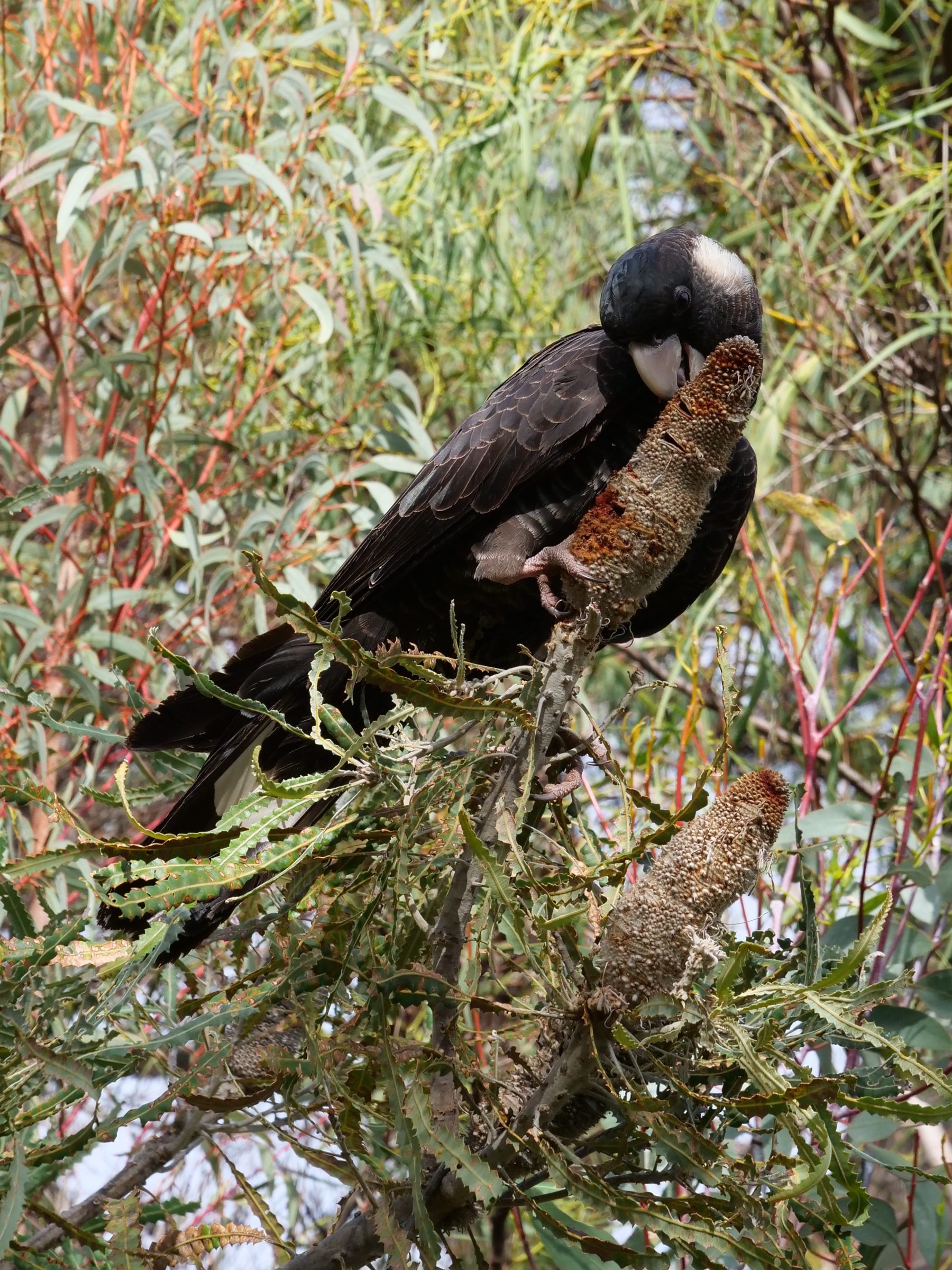
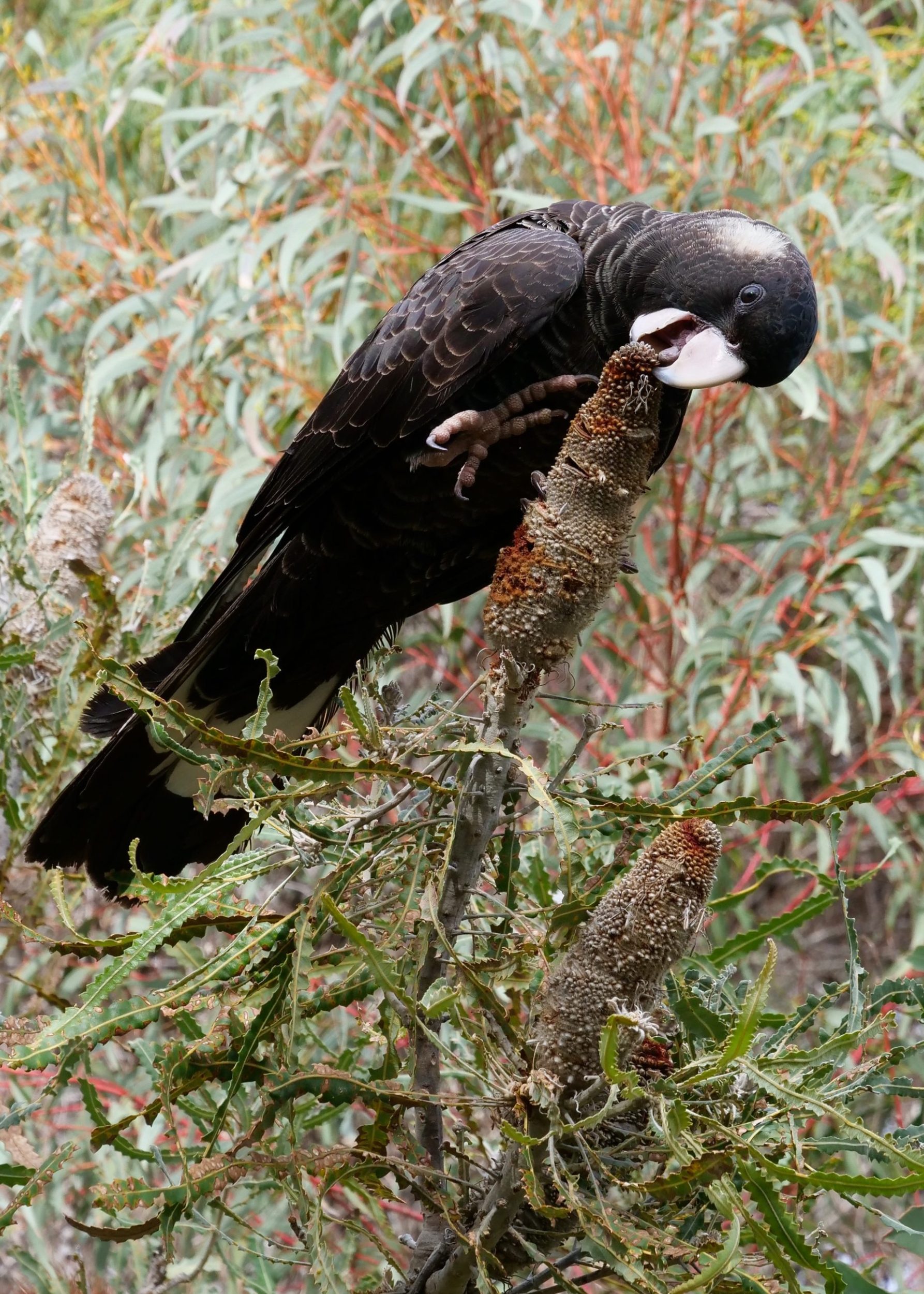
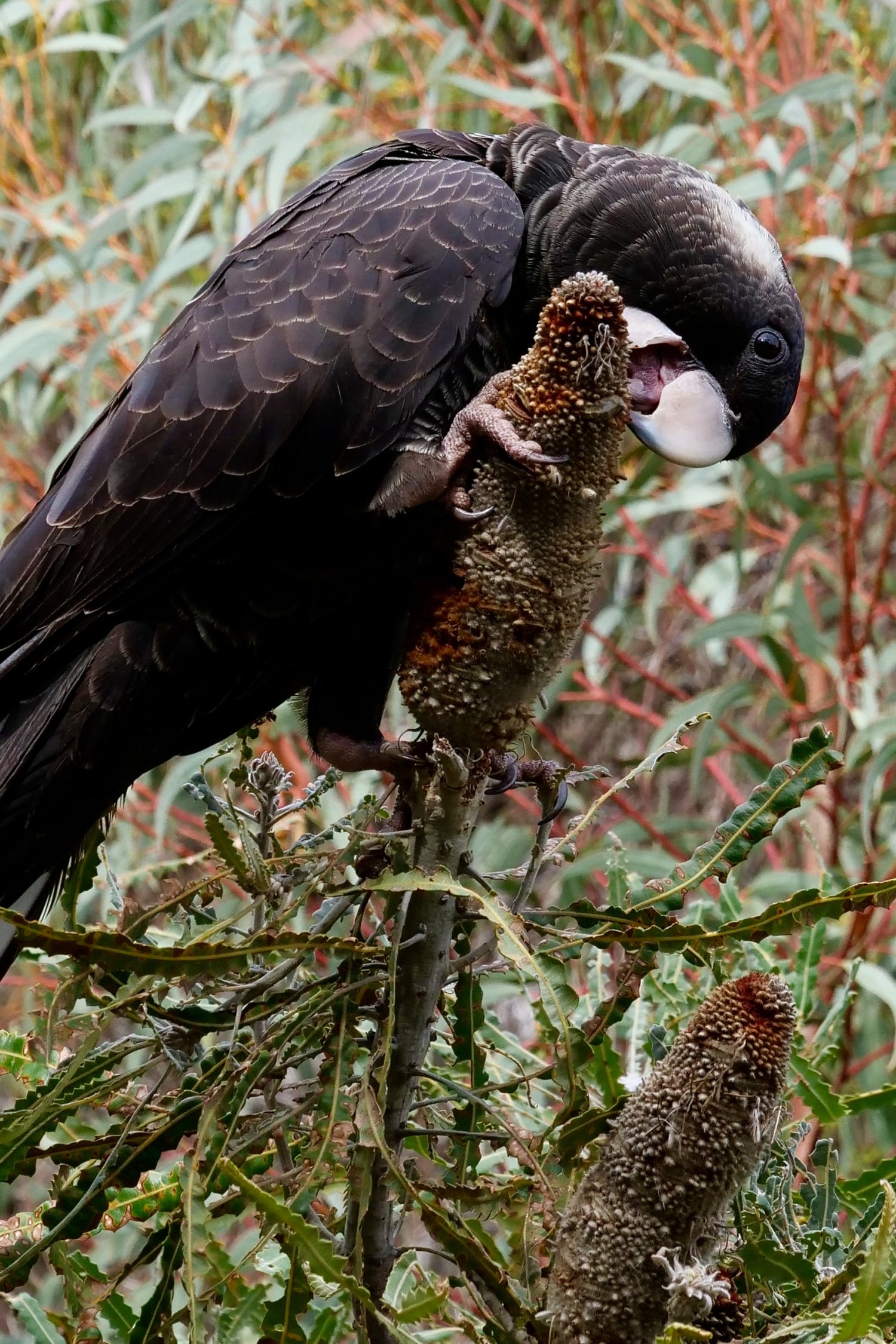
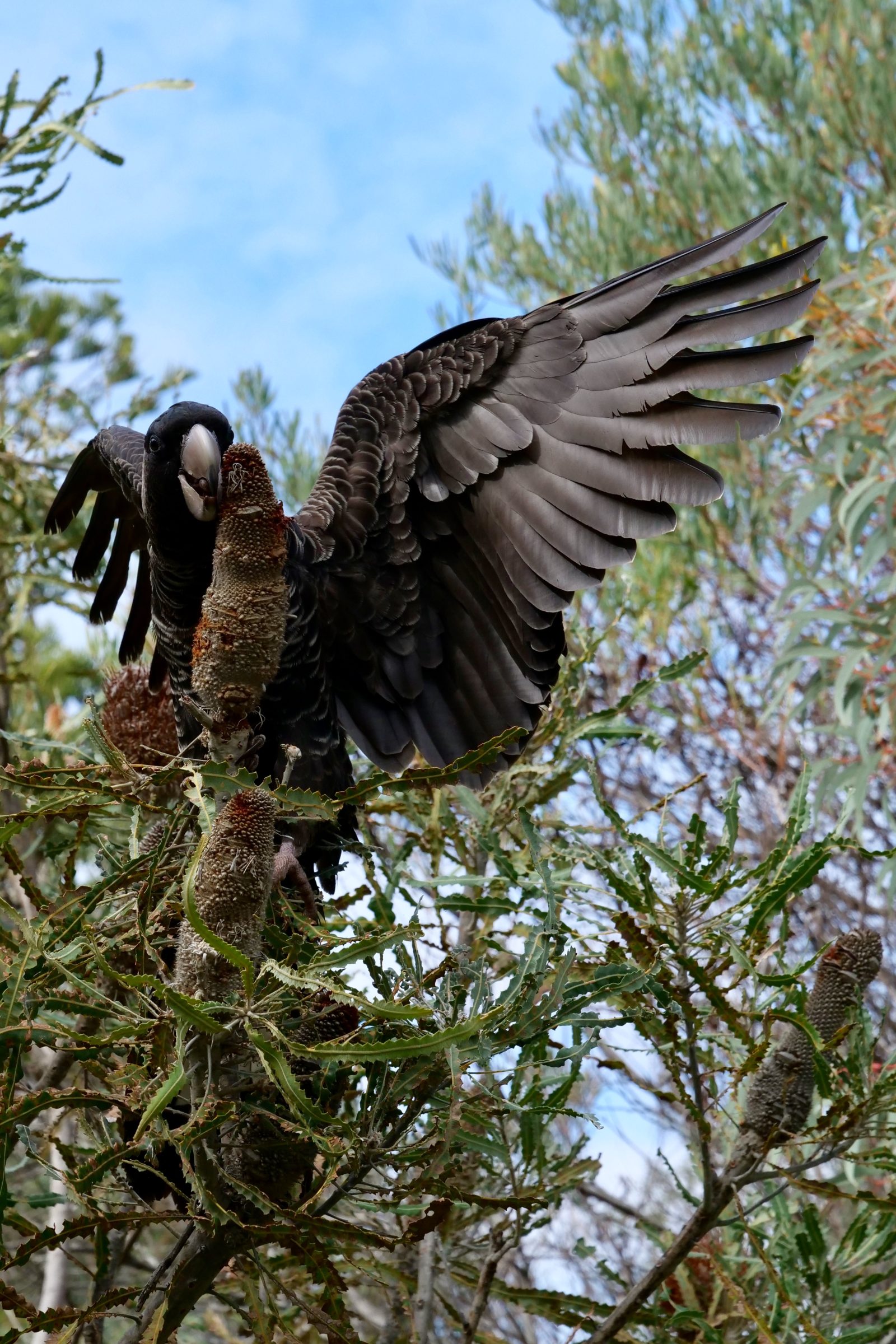
Soon on Pelican Yoga:
a return to Madagascar for more lemurs (and humans), a haunting African song (with a connection to John Le Carré), and the “undervisited” end of an exquisite lake in New Zealand.
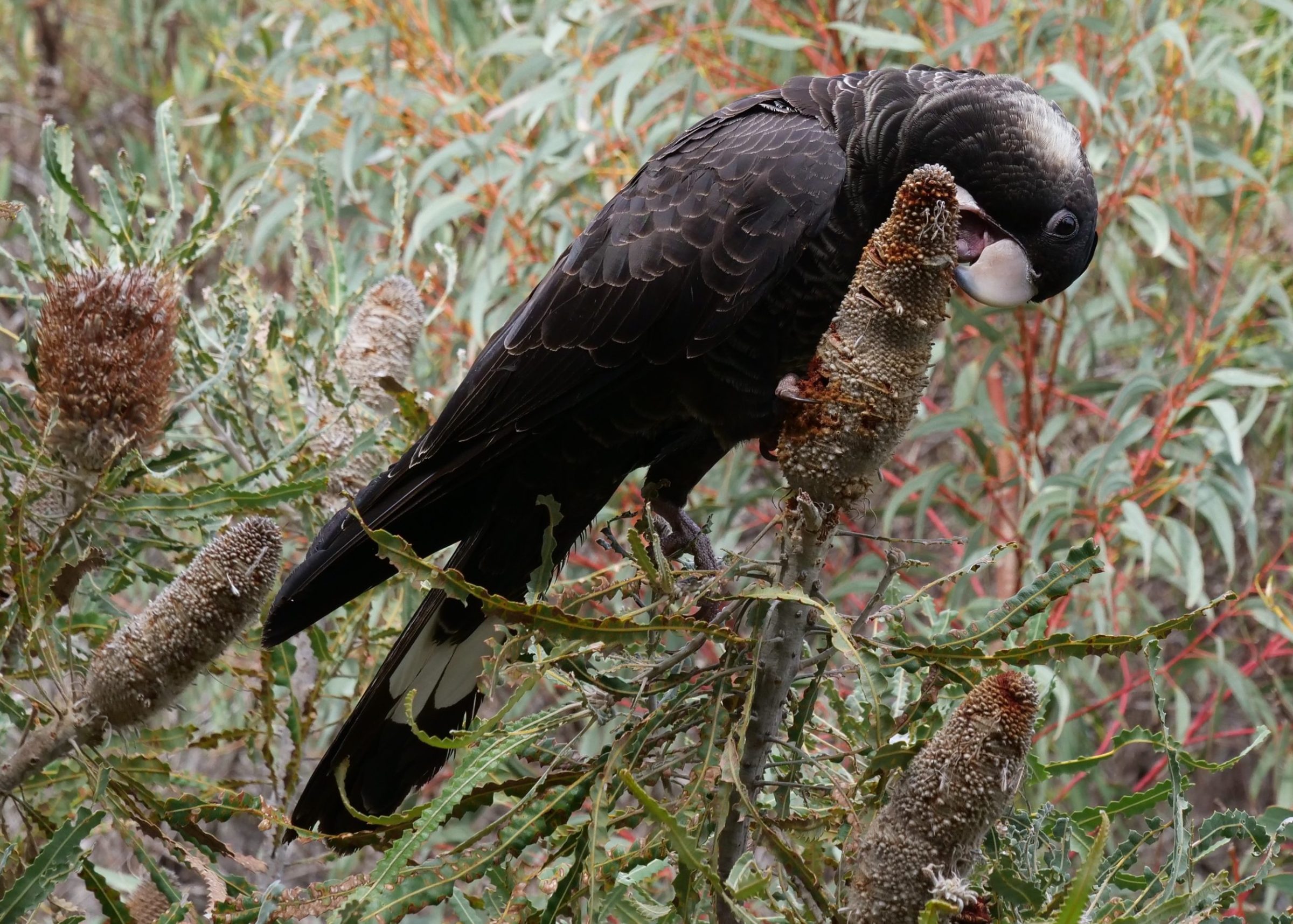
Such a privilege spending these moments with the Carnaby’s. Well captured.
Hi Doug. On your recommendation we went for a hollywood reserve stroll today. Ending up at the Vietnamese section of the cemetery. I never knew it was there. A hidden treasure!
Hi Doug, stunning photos of fungus, flowers and highly animated birdlife.
I hope that two years after, the bushland is still flourishing thanks to the volunteers. I’m sure images like these do a lot to promote its preservation. cheers Bob